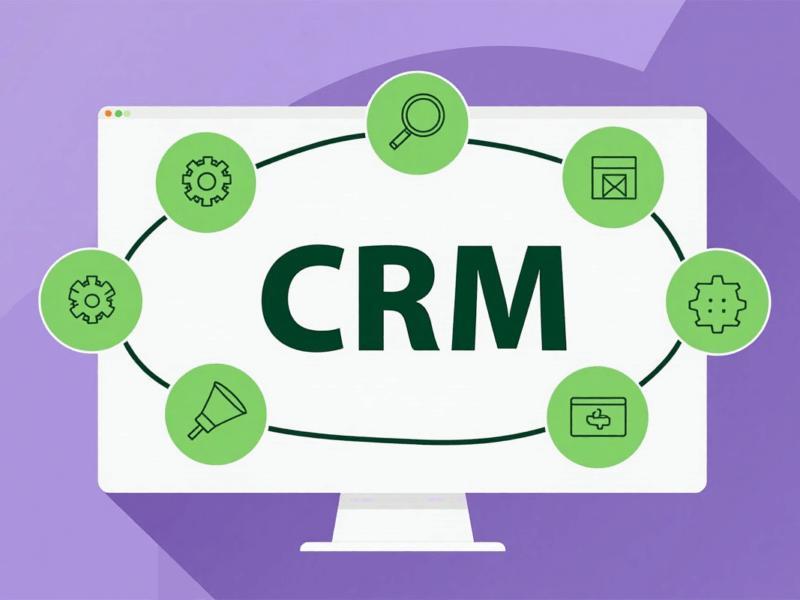⭐ Texas isn’t just big in size—it’s massive in opportunity. From booming startups in Austin to oil powerhouses in Houston and retail giants in Dallas, businesses across the state share one challenge: building strong customer relationships in a fast-paced market. In 2025, the key to success lies in one tool—CRM.
In this guide, we break down the 5 most essential CRM platforms for Texas businesses, showing you how each one can streamline operations, increase sales, and personalize the customer experience—all while keeping up with the unique demands of the Texas economy.
Why CRM Software Is a Game-Changer for Texas Businesses
With one of the most diverse economies in the U.S., Texas companies need flexible, scalable tools to stay competitive. A smart CRM system helps you:
- 📊 Centralize customer data for better decision-making.
- 🚀 Accelerate sales cycles through automation.
- 🎯 Enhance marketing precision using real-time analytics.
- 📈 Scale effortlessly as your business grows.
In short, a CRM isn’t just a database—it’s your strategic growth engine.
How to Choose the Right CRM for Your Business
Before diving into the top CRM options, here are five essential criteria to guide your decision:
- Industry-Specific Capabilities
Look for CRMs that cater to your unique workflows—whether that’s property tracking for real estate, or vendor compliance for energy. - Scalability
Texas businesses grow fast. Choose a CRM that grows with you, not against you. - Ease of Use
If your team can’t use it, they won’t use it. A clean, intuitive interface drives adoption. - Mobile Access
Field reps and mobile teams need to manage deals anytime, anywhere. - Seamless Integrations
Your CRM should work with tools you already use—email, accounting, project management, and more.
🏆 The 5 Best CRM Tools for Texas Businesses in 2025
1. Salesforce: The Powerhouse CRM
🔧 Why it stands out:
Salesforce continues to lead the global CRM market with unmatched customization, AI capabilities, and industry-specific solutions.
⭐ Key Features
- Custom dashboards and automated workflows
- Salesforce Einstein: AI-driven forecasting and insights
- Pre-built modules for healthcare, retail, and real estate
- Massive integration ecosystem
🏢 Best for:
Mid-to-large businesses in tech, finance, oil & gas, or healthcare.
2. HubSpot CRM: Simplicity That Scales
🔧 Why it stands out:
Perfect for startups and growing businesses, HubSpot CRM is user-friendly, cost-effective, and packed with features—even on its free plan.
⭐ Key Features
- Forever-free CRM with scalable upgrades
- Integrated sales, marketing, and service tools
- Automated email sequences and lead tracking
- Native integrations with Gmail, Outlook, and more
🚀 Best for:
Startups and small businesses looking for an all-in-one growth platform.
3. Zoho CRM: Budget-Friendly, Feature-Rich
🔧 Why it stands out:
Zoho is a favorite for small and medium-sized businesses looking to optimize workflows without breaking the bank.
⭐ Key Features
- AI assistant for smarter sales decisions
- Multichannel communications: email, phone, social, live chat
- Workflow automation to reduce manual tasks
- Highly affordable pricing tiers
💼 Best for:
Cost-conscious businesses in real estate, retail, or professional services.
4. Microsoft Dynamics 365: Enterprise-Level Efficiency
🔧 Why it stands out:
More than a CRM—Dynamics 365 combines customer management with ERP capabilities. Ideal for complex operations and Microsoft-driven companies.
⭐ Key Features
- Tight integration with Microsoft 365, Teams, and Azure
- Advanced AI and business intelligence
- Comprehensive field service and customer care modules
- Enterprise scalability
🏭 Best for:
Large enterprises in manufacturing, logistics, or oil & gas.
5. Pipedrive: Sales-Focused and Visual
🔧 Why it stands out:
Built by salespeople, for sales teams. Pipedrive’s clean, visual interface makes deal tracking easy and effective.
⭐ Key Features
- Drag-and-drop sales pipeline
- Automation for repetitive sales tasks
- Mobile CRM app for on-the-go lead management
- Flexible pricing
📈 Best for:
Sales-driven teams in tech, real estate, or professional services.
Texas Industries That Gain the Most from CRM Software
🏡 Real Estate
Agents and brokers use CRMs to manage listings, follow up with leads, and stay competitive in a fast-growing housing market.
⚙️ Oil & Gas
Streamline vendor management, contract tracking, and compliance in one place.
🩺 Healthcare
Manage patient records, appointment scheduling, and engagement campaigns with ease.
🛍️ Retail & E-commerce
Track customer behavior, personalize offers, and increase loyalty through targeted messaging.
💡 Tech Startups
Organize investor relations, sales pipelines, and onboarding flows in rapidly scaling environments.
What’s Next: CRM Trends to Watch in 2025
🤖 AI-Powered Automation
Think chatbots, predictive analytics, and intelligent workflows that make teams more efficient.
🏭 Verticalized CRM Solutions
More CRMs are being tailored to specific industries like energy, health, and real estate.
📱 Mobile-First CRM Experiences
Expect even more robust mobile tools that empower remote and on-site teams alike.
🌱 Sustainability Tracking Tools
As ESG becomes a priority, CRM platforms are incorporating features to track environmental and social impact.
Common CRM Mistakes (And How to Avoid Them)
❌ Skipping Team Training
The best CRM won’t help if no one knows how to use it.
❌ Overcomplicating Your Stack
Choose tools your team will actually use—not just shiny extras.
❌ Ignoring Customer Support
Responsive support is key when issues arise or when scaling up.
Final Thoughts: Choose a CRM That Works Like You Do
Texas business moves fast—and in 2025, your CRM needs to keep pace. Whether you’re managing properties in Houston, running a retail brand in Dallas, or scaling a SaaS company in Austin, the right CRM gives you the clarity, control, and competitive edge to grow smarter.
With any of the five CRM tools listed above, you’re not just investing in software—you’re investing in stronger customer relationships, better processes, and long-term success in the Lone Star State.


